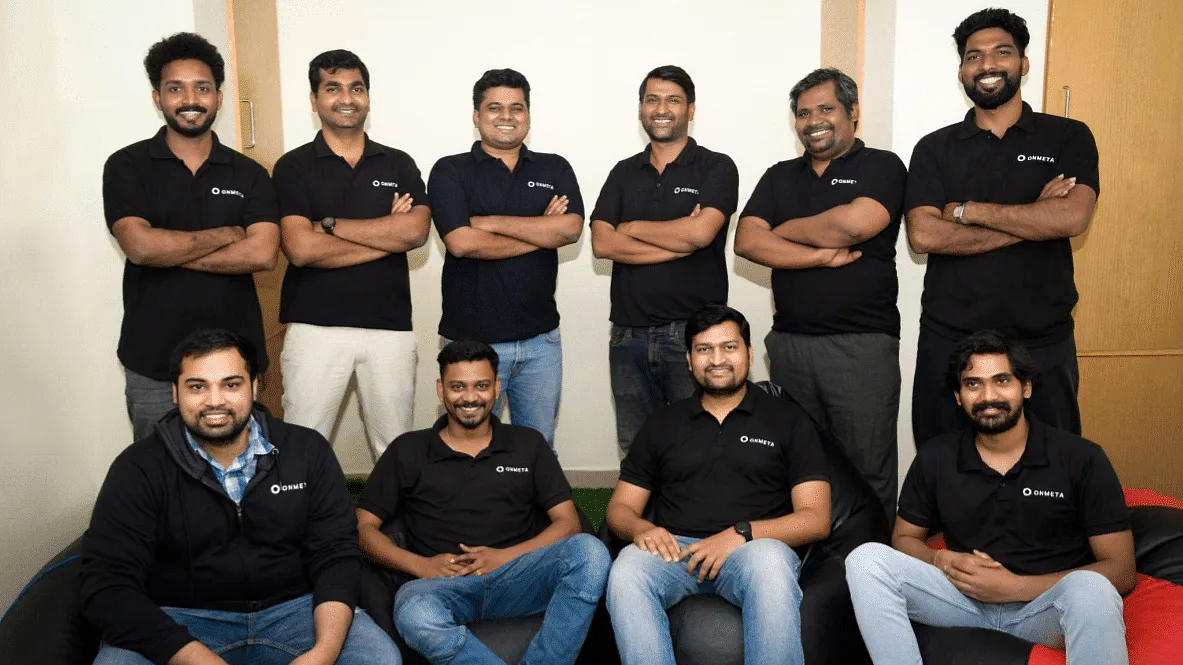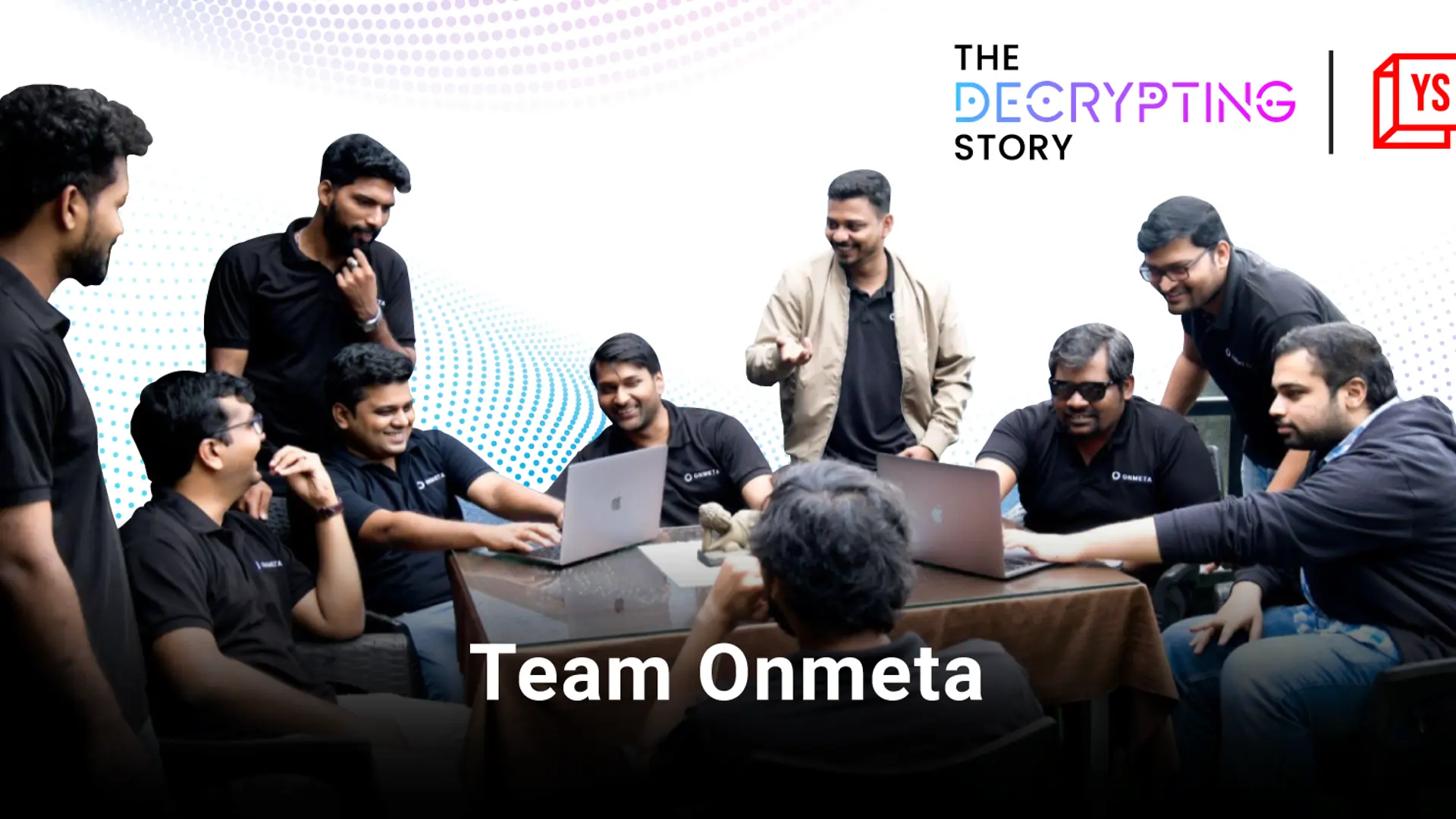How Onmeta helps users swap fiat money for cryptos
The Bengaluru-based startup powers the payment gateway of Web3 merchants, helping consumers exchange fiat money for crypto currency, using which they can buy NFT assets.
Let’s say you wish to attend a Web3 conference in Goa, but you can buy a ticket online only using crypto currency. Don’t fret if you don’t have cryptos, for you can use a debit card or UPI to buy them and bag your NFT (non-fungible token) ticket to the conference. The NFT ticket does away with the hassles of traditional ticketing and gives you access to a host of benefits and perks.
Bengaluru-based is driving this seamless exchange between fiat money and crypto currency, thus bridging the gap between the two worlds. The startup, which is registered in Singapore, powers the payment gateway of Web3 companies by offering a ‘crypto on-ramp’ service.
On-ramp service allows economic value to flow from fiat money (government-issued currency) into crypto assets. Simply put, it lets users buy crypto currency using fiat money. The crypto currency can then be used to earn NFT assets such as tickets, music, video, and art.
ALSO READ

Birth of Onmeta
Bharat. T and Krishna Teja, Founders of Onmeta, had earlier handled the payment domain of Web2 companies such as and . The two colleagues-turned-friends wanted to bring their expertise in the payment domain into the Web3 space. This desire led them to set up Onmeta in 2022.
“We found Web3 exciting and wanted to combine our knowledge of handling payment sections in the Web2 space. That is when we thought of crypto on-ramp, which is essential for most businesses and enterprises today, and hence co-founded Onmeta,” says Krishna.

The Onmeta team
How Onmeta works
The Onmeta experience is similar to how payment solutions work in the Web2 space, according to Krishna. He gives an example, “In an ecommerce site, users click on ‘Buy with PayPal’, which opens up a widget, wherein users enter the card details and make the payment.”
Today, Web2 firms, including Flipkart and Amazon, have integrated payment solutions like and into their sites to conduct transactions. Likewise, Web3 firms too need a payment solution that helps users convert their traditional money into crypto money and buy NFTs.
However, going to a centralised cryptocurrency exchange or market for crypto currency is a cumbersome process saddled with KYC procedures. Hence, it may be more convenient for users to go through an autonomous decentralised application to swap fiat money (traditional money) for cryptos. Decentralised apps (dApps) do not compromise on security and do not give user’s personal data to third-party exchanges.
Merchants can integrate Onmeta into their dApp through a widget or an API-based integration.
Onmeta runs on a B2B model, while its platform is built on the Polygon infrastructure. The company will soon expand into other blockchains including Ethereum and BNB chain.
The startup also plans to offer an off-ramp service in the future. It involves selling crypto tokens, NFTs, and any other digital assets to buy cash.
Regulatory challenges
Krishna says comprehending compliances and regulations of each country is a big challenge. However, he asserts that the startup will comply with the regulations of every country. As cryptos are extremely volatile, managing the slippage percentage (difference between expected price of the order and the price when the order actually executes) is also challenging, he says.
Prateek Gupta, Head of Sales and Business Development, Onmeta, says, "The bearish outlook of the market does not affect the startup. It doesn’t concern us because we are a solution layer. dApps will require payments checkout solutions. Given the level of compliance and regulation that is required, enterprises will depend on our services despite the conditions in the market.”
Competition and market growth
Five merchants, including the Web3 ticketing platform TickEth, have integrated Onmeta into their dApps. Prateek says, "We have processed transactions worth more than half a million dollars, charging a commission for each transaction."
Krishna says that most payment solutions focus on US dollar, Euro and other Western currencies. But the startup is focused on the currencies of developing countries, especially India.
“Developing countries have a complex regulatory environment and would require a local player to understand the regulations and build. We want to focus on the developing markets and open them up and help them be a part of the larger Web3 ecosystem," says Prateek.
Fiat on- and off-ramp gateways are the future of decentralised finance. Globally, companies such as Transak, MoonPay, Wyre, and Onramper offer crypto on-ramp and off-ramp services. In 2021, companies offering crypto services attracted $17 billion worth of VC money.
Building a close-knit team
The startup has a team of 17 members. “It is challenging to build a good tech team in the Web3 space. We hardly find people who are experienced in Web3. Hence, we onboard people from the Web2 space and train them in Web3,” says Krishna. “We want to build a close-knit familiar team. Most of us have worked together, which lets us grow together as a company.”
Future plans
The bootstrapped startup is looking to raise funds in a seed funding round and expand its operations.
“We want to expand to different geographies and different blockchains. The larger vision is to enable multiple payments in Web3,” signs off Krishna.
(The story has been updated to correct attribution.)
Edited by Swetha Kannan




